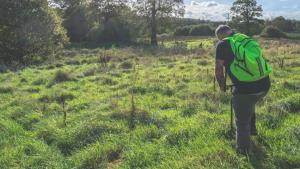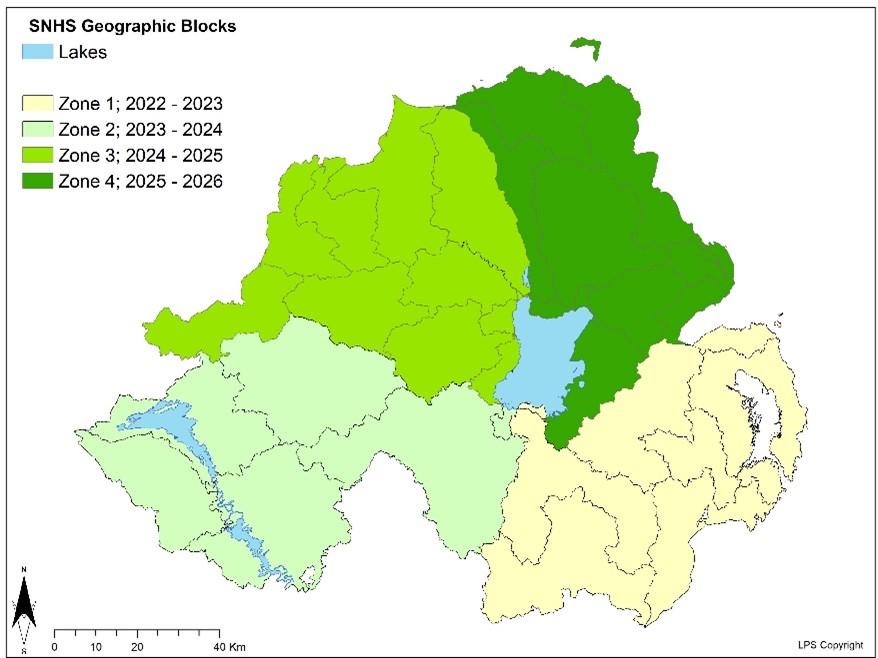Soil Sampling Scheme well underway
Date published:
The Soil Nutrient Health Scheme (SNHS) is rolling out in its first phase in County Down and parts of Counties Armagh and Antrim.

Sampling teams are now on the ground across the area, working systematically to cover the 150,000 fields registered for sampling over the winter period.
As the largest baseline soil sampling programme ever undertaken, significant organisation and planning have been required both by AFBI and their sub-contractors to ensure smooth roll-out and execution. During peak sampling up to 12,000 fields per week will be sampled and processed!
In advance of going out to each farm, AFBI’s sampling contractors RPS Group will contact farmers to check conditions and confirm when they will be sampled. Once on-site each field will be sampled in a representative “W” pattern across the field, taking a minimum of 25 soil cores and with the sample track recorded by GPS. Each sample bag is digitally labelled to allow for full traceability from field, to collection and transfer to NRM laboratories, analysis and generation of results.
Within 4-6 weeks of sampling farmers will receive a soil nutrient report direct from NRM laboratories in the post. This will contain tables of results and recommendations based on their supplied crop information.
Following this, registered farmers will also receive access to a set of maps for their farm that will include soil analysis results for all fields and indicating those areas at highest risk of runoff and nutrient loss during rainfall. This will be accessible through their DAERA online account, where they will be able to download and print a full map report for use in their nutrient management planning on farm. For those farmers without online access, agents and local DAERA offices will be able to provide support.

Dr Rachel Cassidy is leading the project at the Agri-Food Biosciences Institute (AFBI): “Farmers are being provided with data that will support them in making the best possible decisions around nutrient management on their farms. Training helps develop the skills needed to do this so I would urge all farmers to participate in the courses provided by CAFRE as part of this scheme”.
A key element of the success of the scheme will be using the results to implement the report recommendations.
Dr Cassidy concluded: “One of the many benefits of this scheme will be to assist farmers with improving efficiency at a time when the spiralling costs of chemical fertilisers, feed and fuel continue to present many challenges. These events have highlighted our vulnerability to uncontrollable external forces and focussed attention across the industry on the importance of efficiency, to minimise the impact on farm profit margins and to help build resilience for the coming years. The scheme will also make a contribution to reducing farmers’ environmental footprint.”

For further information: https://bit.ly/SNHSUpdate1Nov22
Notes to editors:
AFBI is an arms-length body of DAERA delivering research and development, diagnostic and analytical testing, emergency response capability and expert scientific advice for DAERA and other government departments, public bodies and commercial companies in Northern Ireland, and further afield.AFBI’s Vision is “Advancing the Local and Global Agri-Food Sectors Through Scientific Excellence”.AFBI’s core areas:Leading improvements in the agri-food industry;Protecting animal, plant and human health;Enhancing the natural and marine environment.